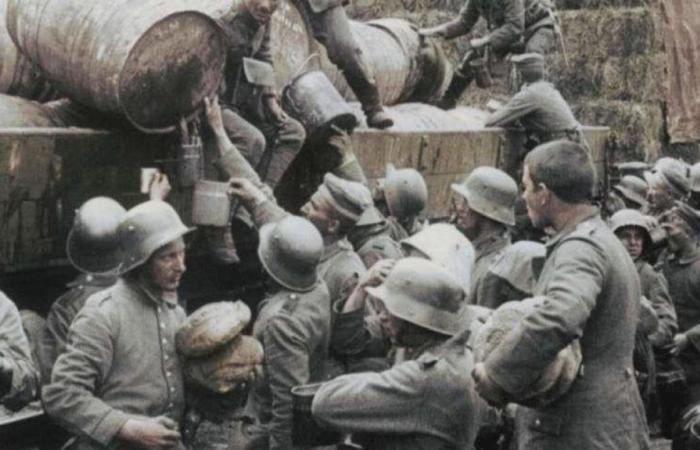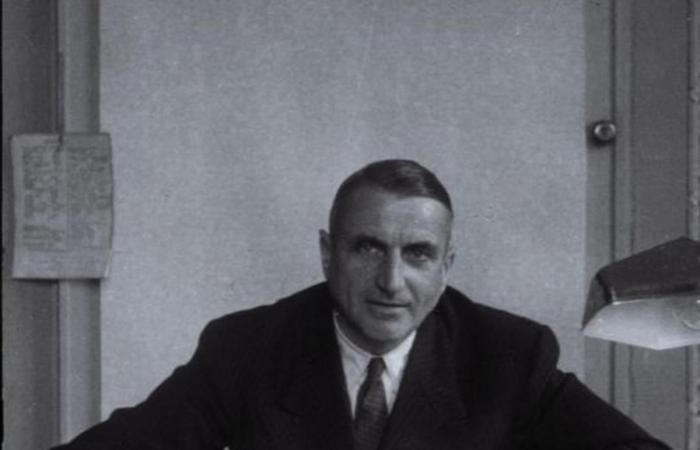It is one of the meetings of the Unipops (popular universities) of Pessac most anchored in local history this season: Monday October 14 (1) the Jean-Eustache cinema screens the documentary “Les Raisins du Reich”, on the relations of the wine world – and in particular the Bordeaux vineyards – with the German occupiers during the Second World War.
This 1 hour 17 minute film has already been broadcast on France 2 on Tuesday October 8, and it remains viewable on the France Télévisions platform until spring 2025. But in Pessac the screening will be followed by a meeting with the director Jean- Christophe Klotz and the historian Antoine Dreyfus. Preview with the latter.
Antoine Dreyfus is a journalist and documentarian. He notably co-directed films on “The Iron Mask” or on the pollution of the Seveso sites in Fos-sur-Mer.
Zadig Productions
You published “The Grapes of the Reich” as a book in 2021. What inspired you to make it into a film?
I have this in mind every time I do an investigation. And in this case the funding provided to me for this documentary allowed me to go further in my research in relation to my book. In particular, I was able to go to Germany. I extended my investigation by talking about the purchases of wines told from the German point of view, of resistance fighters like Maurice Drouhin (director of the administrative commission of the Hospices de Beaune, Editor’s note), of deportees like Robert-Jean de Vogüé (general delegate of the Interprofessional Champagne Wine Committee, Editor’s note) who joined the Resistance after first working with the Vichy system. I didn’t want to just talk about the collaboration.
The Nazis attached great importance to their control over French vineyards. However, it was not as important an issue as the control of industry or transport…
No, but the Nazis wanted great wines and champagnes for the receptions they held across Europe. And then, by attacking the vineyard they were attacking a symbol of France. There was a desire to hurt, to take revenge on the humiliation felt after 1918, and on the misery caused by the reparations that Germany had to pay to France. It should be noted that the large quantities of wine purchased – many wines for everyday consumption were also intended for the combatants – were paid for with the occupation indemnities that France had to pay to Germany.
Zadig Productions
Heinz Bömers was responsible for purchasing wines for Germany in the Bordeaux region: around 60,000 hectoliters per year.
There has been criticism of the fact that traders agreed to deliver such quantities, but were they not obliged to do so, in a context of overproduction and when the British and American markets were closed to them?
“Obligated”, I wouldn’t say that, but, yes, it was necessary to continue to keep the companies alive when they only had one client: Germany, and possibly the Axis countries. The yellow line is located in proximity to the occupant. There were around thirty merchants who stood by Heinz Bömers, the “Weinführer” responsible for buying wine in Bordeaux. Among them, Louis Aschenauer displayed great closeness with Bömers. And Roger Descas sold much more than the orders placed in Bordeaux. He went all the way to Paris for this.
But these orders were paid with a franc devalued by authority by the occupier. Trading could not have grown that much…
This loss of value was offset by the large quantities ordered. In Bordeaux alone, it was 60,000 hectoliters per year. And Bömers offered very reasonable prices. He was a merchant too, and he had been able to place orders through his company and not in the name of the Reich. He was already anticipating the post-war period and the continuation of commercial relations.
You say that the wine world, particularly in Gironde, was very reluctant to open its archives on the Second World War. How do you explain it?
The only people who agreed to talk to us were those who only bought their properties after the war. We also had access to certain archives through Florence Mothe (speaker and historian, Editor’s note), whose grandfather was a director of Louis Aschenauer’s trading company.
Even Eric de Rothschild did not respond to my requests for a meeting, even though he is president of the Shoah Memorial and, in his family, Philippe de Rothschild, was struck with national indignity, that his castle, Mouton Rothschild, was confiscated by the Vichy regime, and he was forced to flee to England. This is probably linked to professional solidarity in the world of trading, which encourages discretion in an environment where the notion of reputation is important.
(1) At 6:30 p.m. The screening is accessible to those who are not Unipops members (5.50 to 9.50 euros) but not the debate – unipop.fr







